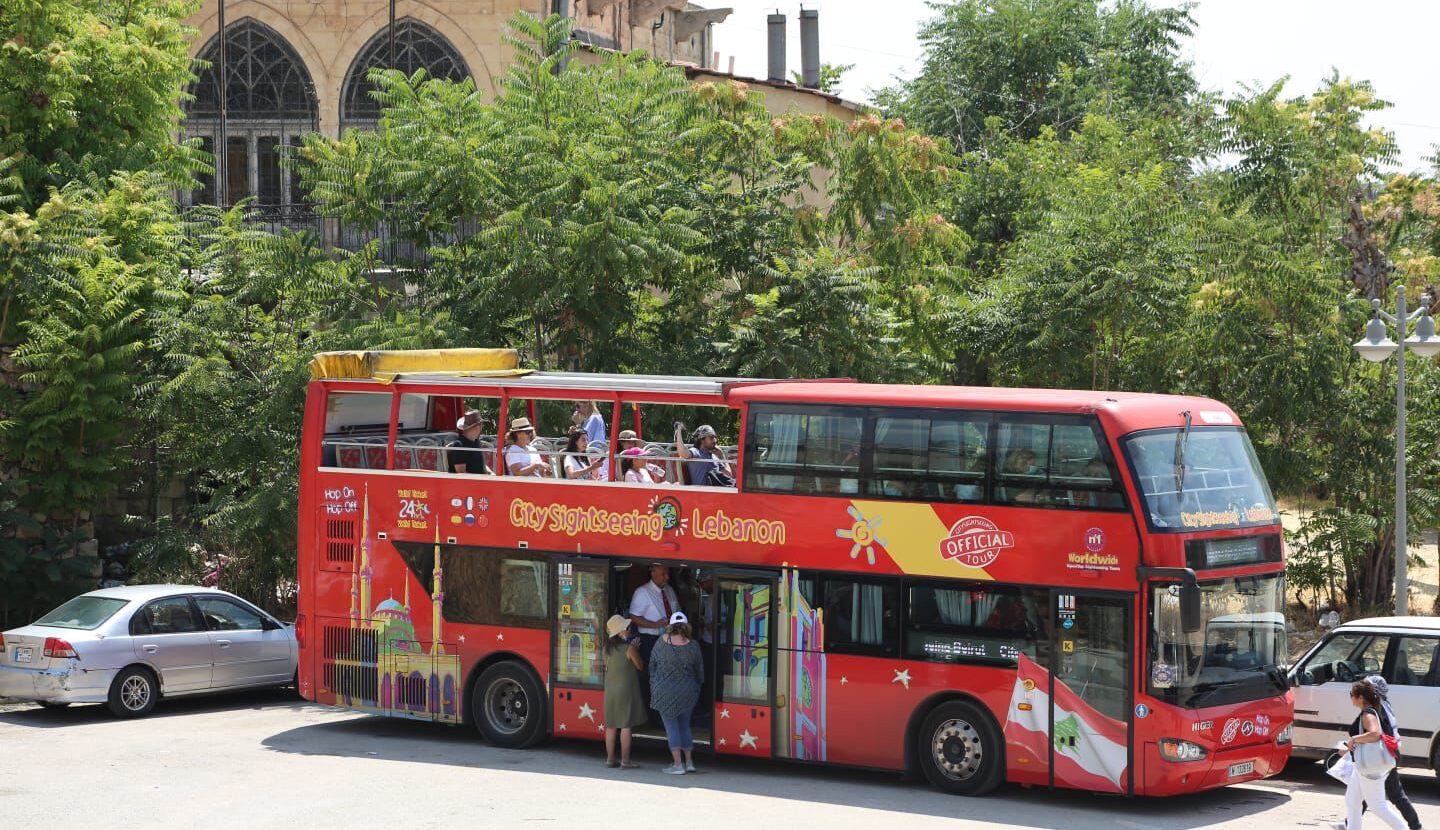Tourism in Lebanon Crumbles as Conflict Escalates
The recent assassinations and subsequent threats of retaliation have forced many countries to advise their citizens to leave Lebanon, impacting the local tourism industry
Over the past week, fears of a full-scale war in the region have increased following the back-to-back assassinations of top Hezbollah commander Fuad Shukr in Beirut and Hamas political chief Ismail Haniyeh in Tehran. Iran and its proxy Hezbollah have vowed to retaliate against Israel, further destabilizing the region.
Several countries, including the US, UK, France, Italy, and Turkey, have called on their citizens to leave Lebanon immediately due to the risk of a regional conflict. The US Embassy in Beirut advised its nationals to purchase a ticket “as soon as possible” or to “prepare contingency plans” if they choose to stay and to organize themselves to “shelter in place for an extended period.”
The UK’s Foreign Office also urged its citizens to leave the country “while commercial options remain available.” In response, hundreds of people, especially Lebanese expatriates visiting for summer, along with some foreigners, rushed to the airport within hours and left the country.
This situation may further impact Lebanon’s economy, which relies heavily on tourism.
Lebanon has been suffering from a severe, multifaceted crisis due to a financial collapse that began in 2019, the COVID-19 pandemic, and the Beirut Port explosion in August 2020. The local currency, the Lebanese pound, has lost more than 95% of its former value, unemployment has surged to almost 14%, with more than half the population below the poverty line, the banking sector has stopped lending and attracting deposits, and severe fuel shortages have occurred.
After the explosion, tourism began to recover slowly until October 8, when the Iran-backed group Hezbollah started attacking Israel from its southern border in support of Hamas in the Gaza Strip.
We had reservations planned from October 8 until August 2024; 90% of them were canceled
Give the gift of hope
We practice what we preach:
accurate, fearless journalism. But we can't do it alone.
- On the ground in Gaza, Syria, Israel, Egypt, Pakistan, and more
- Our program trained more than 100 journalists
- Calling out fake news and reporting real facts
- On the ground in Gaza, Syria, Israel, Egypt, Pakistan, and more
- Our program trained more than 100 journalists
- Calling out fake news and reporting real facts
DONATEJoin us.
Support The Media Line. Save democracy.

“We had reservations planned from October 8 until August 2024; 90% of them were canceled. I have been in this field for 6 years, but I have never experienced something this bad. We are even considering a plan B, given the current unbearable situation,” said Elie Louka, a Lebanese tour operator from the Beirut-based Explore Lebanon Tours agency.

(Courtesy)
“Our main target has always been European and American tourists, who, due to the situation, have been asked to leave the country or prefer not to risk it. Since May, I have received only a few reservations from Lebanese expatriates, who request tours during the summer for the ‘wedding season.’ So, we generally work once or twice a week, and we are truly struggling,” said Khaled Bashashi, a Lebanese tour operator from the agency Lebanon Trips and Tours, based in Beirut.

(Courtesy)
Lebanese people are used to war and are trying to live ‘normally,’ as I am currently, but we are all so tired of this situation
Bashashi added, “Lebanese people are used to war and are trying to live ‘normally,’ as I am currently, but we are all so tired of this situation. We have daily power shortages, we fear retaliation in Beirut (which was targeted last week), and we do not have real shelters. We may use underground parking and warehouses, but they are not even well-ventilated.”
Most people in Lebanon have Lebanese passports only and nowhere else to go despite the situation, while others have dual citizenship.
Viviane Nasr, a Lebanese American citizen, decided to open the business City Sightseeing Lebanon, but since October, she has been facing financial issues and is considering moving the business to Qatar.

A City Sightseeing Lebanon hop-on hop-off tour bus. (Courtesy)
“There is nothing left here, but we still need time to organize everything to move elsewhere, probably to Qatar. As an American citizen, I get texts every day from the embassy, but I am not ready to leave the country immediately. I have my business here, my family, and friends. I won’t leave now, and many others won’t either,” she stated.
Each of them shared their thoughts on what may happen in the coming hours.
“In the upcoming hours, something may happen. We just need to hope that it won’t worsen the situation in the region. The situation we live in is mostly Israel’s fault, but Hezbollah also has its responsibility. When the ‘issue of Jerusalem’ is resolved, there will be peace in the region,” concluded Bashashi.
“I hope there will be peace. We are sick of war and instability. Lebanon is a beautiful country and deserves to be seen as one,” concluded Nasr.
I hope this conflict will end once and for all. We are all concerned now about our economic stability as well.
“I hope this conflict will end once and for all. We are all concerned now about our economic stability as well. Tourism must be brought back safely,” said Louka.
Giorgia Valente is a recent graduate of Ca’ Foscari University of Venice and an intern in The Media Line’s Press and Policy Student Program.
